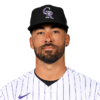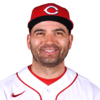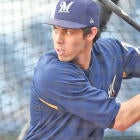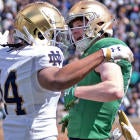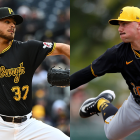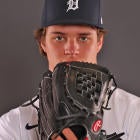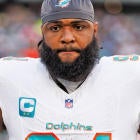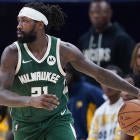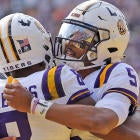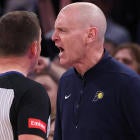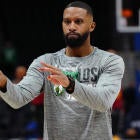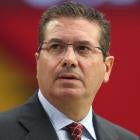Want more sleepers for your Fantasy draft? Head to SportsLine.com and check out the all-new ACES metric to find overlooked starting pitchers. You'll find some names from this list ranked surprisingly high.
Regression comes in many forms, especially when you're talking about Fantasy sports. Sometimes we're talking about good or bad luck that was largely out of the players' control. Other times we're just talking about a player regressing back to the player he was before a career year.
Regardless of what's implied by the term, the most important thing for a Fantasy owner to know is which players are expected to have different results in 2019 and why. Here are seven players due for regression and what you should expect this season.
The expectation going into 2018 was that Christian Yelich would take advantage of his new park and a better lineup to post a career year. Boy, did he ever. Yelich won the MVP and set career highs in nearly every category that matters in Fantasy Baseball. While you should continue to expect big things from Yelich, you shouldn't expect him to match 2018.
The most clear place for Yelich to regress is in the power department. While it's true Miller Park is a great place for left handed hitters, it's hard to fully take advantage of that with a ground-ball rate over 50 percent. Yelich ended 2018 with an insane 35 percent HR/FB rate, which is a full 15 points higher than his career average. Even if you want to presume a 25 percent rate in 2019 (that's probably too high), he's going to lose close to a third of his home runs.
Assuming a few of those home runs turn into outs, Yelich is going to lose a couple of points off his batting average. He'll lose more than that due to a likely drop from last year's .373 BABIP. His career mark is extremely high (.359), so it won't be a huge drop but should probably be enough to drop your expectation to a .300 average, or a 26 point drop.
Finally, if Yelich hits 10 few home runs and loses 26 points points off his average, it's unlikely he's going to match last season's 228 runs-plus RBI. Ariel Cohen's ATC projection has Yelich at 194 with a .301 average and 27 home runs. That's still a great year, but it's a far cry from what he did in 2018.
Like Yelich, Javier Baez had a lot of helium heading into 2018 and had a breakout campaign. I was on the wrong side of this one last year, but I feel pretty comfortable betting on him coming back to earth in 2019. Baez set career highs last year in BABIP (.347), stolen base attempts (30) and HR/FB rate (24.3 percent). The HR/FB rate is the most troubling because his hard contact rate didn't really go up relative to league average.
The ATC projections still expect a very good year for Baez (30 home runs, 18 steals, .275 average), but again there's a drop in every Rotisserie category in 2019. What's more, it's one of the more optimistic projections you can find for Baez. It's really hard to hit .275 with a strikeout rate over 25 percent. Baez is a fine choice as a third-round pick in a Roto league, but he'll be worse in points.
If Yelich has a small problem with ground balls, Ian Desmond has a crisis. Each of the past two seasons he's had a ground ball rate of at least 62 percent. Eric Hosmer has the second highest rate over that period at 57.9 percent. Somehow (with a 24.7 percent HR/FB rate) Desmond managed 22 home runs in 2018, but I wouldn't expect him to come close to that this year.
The other concern with Desmond is that he's 33 years old and at some point his prowess on the base paths will deteriorate. ATC projects him for 17 home runs and 17 steals, and I'm afraid both might be optimistic. He won't produce great numbers in any one category, and if he stops running he's going to be close to useless in Fantasy. Let someone else bet on Desmond's legs at his ADP.
I feel a lot more comfortable with regression when I have numbers to back it up, like the cases above. But sometimes you're just betting on a 31-year-old regressing back to his prior skillset. Or at least close to it. That's where I'm at with David Peralta.
Going into last year Peralta was pretty well defined as a good average hitter with a little bit of pop. Then he started mashing. His hard contact rate exploded to 48 percent and he hit 30 home runs for the first time in his career. The strange thing is, he didn't start hitting more balls in the air, like so many hitters we've seen break out over the past few years.
I still expect Peralta to be a useful outfielder in Fantasy, but I'd bet against him repeating his contact from 2018, which is going to have a big negative impact on his power numbers. The ATC projection puts him at 22 home runs, which would still be five more than he'd ever hit before last year.
Not all regression is negative. And no, I'm not going to call it "positive regression." When it comes to Joey Votto, think of it more like regressing back to a previous state. In 2018 Votto's average slipped to .284 (career .311) and he hit fewer home runs (12) than he ever had in a season where he played at least 100 games.
He is 35 years old, so you might just think his skills are deteriorating. Well, he walked more than he struck out and posted the highest line drive rate (31.4 percent) and hard contact rate (41 percent) of his career. Those line drives did come at the expense of fly balls, but that doesn't explain is minuscule 9.5 percent HR/FB rate.
I'd expect Votto to double his home run total from 2018 (at least), approach a .300 average, and add at least 40 runs-plus RBI. ATC projects him for a .294 average, 22 home runs and 169 runs produced.
League BABIP has been a remarkably stable statistic over the past decade. While home runs and strikeouts have soared, BABIP has remained right around .300. That doesn't mean every hitter will be around .300, though. Yelich is a prime example. But Travis Shaw had been within 12 points of average every year of his career until 2018 when he posted a .242.
While that sticks out as an obvious outlier, I'm not sure people realize what it means if it normalizes. In 2017, Shaw hit .273 with a .312 BABIP. That was with 31 home runs and a 22.8 percent strikeout rate. In 2018 his power numbers remained steady while he improved his strikeout rate to 18.4 percent. With anything resembling a normal BABIP he could be an asset in batting average.
Now it's true that Shaw hit more fly balls last year (44.5 percent), but he had almost an identical fly ball rate in 2016 and had a .299 BABIP. He also pulled the ball more often last year. Maybe Shaw is really a .280 BABIP guy now. If he is, he's a .270 hitter with more than 30 home runs and a big help in RBI. That's a top-five second baseman with dual eligibility. For what it's worth, ATC is more pessimistic, giving Shaw a .255 average with 29 home runs in 142 games.
Most of the evidence seems to suggest that the success rate of a base stealer is not very predictive, at least for guys who are established base stealers. Dee Gordon's past seems to lend credence to the idea. He has a career 77 percent success rate. But here is over the last five years:
2014 - 77 percent
2015 - 74 percent
2016 - 81 percent
2017 - 79 percent
2018 - 71 percent
If you're going to set an expectation for him in 2019, it should probably be between 75 and 77 percent success. Maybe more importantly, you should expect him to run more. Gordon attempted 12 steals in April (and was only caught twice) but a toe injury in May really slowed him down. He didn't have another month with more than eight attempts and he was caught nine times in 23 attempts after June 1.
The ATC projection has Gordon at 38 steals in 2019 and a 77 percent success rate. I think the attempts may be a bit cautious, but either way you should expect him to be more help in steals than he was in 2018.
So which Fantasy Baseball sleepers should you snatch in your draft? And which undervalued hitters can help you win a championship? Visit SportsLine now to get Fantasy Baseball rankings for every single position, all from the model that called Scooter Gennett's huge breakout last season, and find out.










